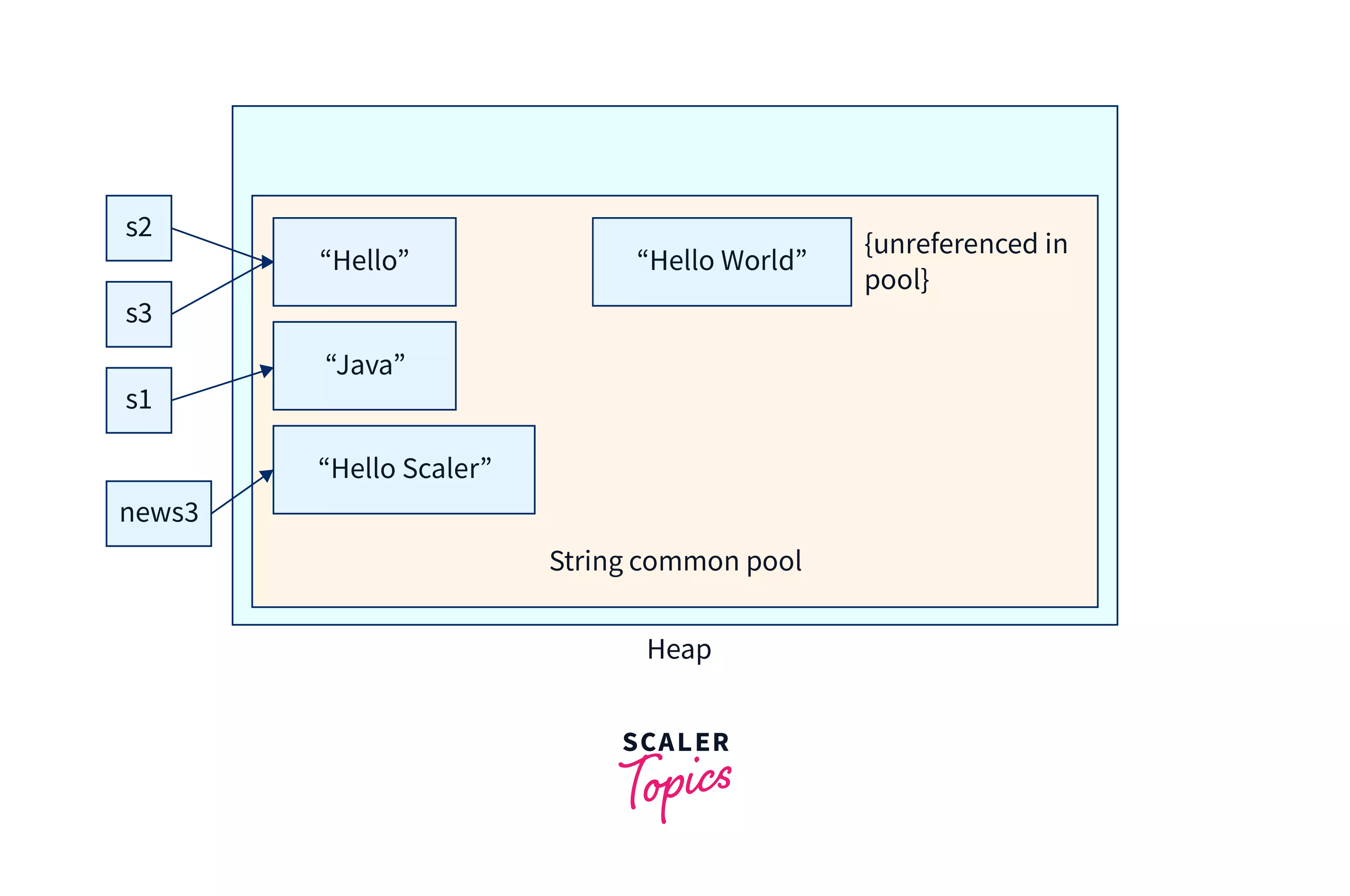Why Are Strings Immutable in Java? Key Reasons and Benefits Discussed
Why Are Strings Immutable in Java? Key Reasons and Benefits Discussed
Blog Article
Immutable Strings: A Key Element in Ensuring Data Uniformity and Integrity
In the realm of data monitoring, the value of immutable strings can not be overstated. These changeless sequences of personalities play a crucial role in maintaining the integrity and precision of info within systems. By keeping a state of immutability, information consistency is guaranteed, promoting a structure of reliability upon which critical procedures count. The idea of immutable strings transcends simple triviality; it is a linchpin in the complex internet of data governance. As we discover the benefits, execution strategies, and useful applications of immutable strings, a more clear picture emerges of their essential nature in securing the electronic landscape.
The Principle of Immutable Strings
Unalterable strings, a basic principle in programs, refer to strings that can not be modified when they are developed. Fundamentally, when a string value is designated, any procedure that shows up to modify the string really develops a brand-new string. This immutability makes certain data consistency and integrity in applications, as it protects against unexpected modifications to the original information.
Benefits in Data Consistency

Information consistency is vital in different facets of software growth, including data source monitoring, multi-threaded settings, and distributed systems (Why are strings immutable in Java?). Unalterable strings contribute considerably to achieving this consistency by protecting against information corruption as a result of simultaneous accessibility. In scenarios where several processes or threads engage with the same information simultaneously, unalterable strings serve as a secure versus race conditions and synchronization concerns
Furthermore, the immutability of strings simplifies debugging and screening procedures. With unalterable strings, developers can trust that once a string is established, it will stay unchanged, making it easier to map the resource of mistakes and making sure that examination situations generate regular outcomes. This dependability in information managing inevitably results in a lot more durable and steady applications.

Implementing Unalterable Strings
Making sure the immutability of strings calls for a thoughtful method to their implementation in software development. As soon as a string things is produced, one crucial approach is to develop string courses in a method that prevents adjustments. By making strings immutable, programmers can improve data uniformity and reliability in their applications.
To implement unalterable strings successfully, designers should favor producing brand-new string objects as opposed to modifying existing ones. This practice guarantees that once a string is appointed a value, it can not be altered. Furthermore, any procedure that appears to change the string must produce a brand-new string with the wanted adjustments rather of modifying the original.
Furthermore, making use of immutable strings can streamline concurrency monitoring in multi-threaded atmospheres. Considering that immutable strings can not be transformed after creation, they can be safely shared amongst numerous strings without the danger of data corruption.
Duty in Integrity Assurance
In software development, the application of unalterable strings plays a crucial role in guaranteeing the reliability of information operations. Immutable strings, once produced, can not be changed, making certain that the information they stand for stays anchor constant throughout the application's implementation. This immutability property gives a degree of guarantee that the data being processed will not be unintentionally altered, causing unanticipated outcomes or mistakes in the system.
By incorporating immutable strings into software style, developers can enhance the reliability of their applications by decreasing the threats connected with mutable information - Why are strings immutable in Java?. Unalterable strings aid in protecting against information corruption or unintended modifications, which can be particularly vital when taking care of sensitive details or when data integrity is paramount
Furthermore, the use of immutable strings streamlines simultaneous processing, as numerous threads can securely access and share string data without the risk of one string changing the content while one more reads it. This facet contributes substantially to the general integrity of the software system, making sure consistent and predictable habits in information taking care of operations.
Applications and System Integration
The seamless integration of immutable strings right into various applications and systems is essential for making sure durable information consistency and dependability throughout diverse technological settings - Why are strings immutable in Java?. Unalterable strings play an important function in enhancing the stability of information exchanges and communications within facility software program environments. By integrating immutable strings right into applications, developers can minimize the risks related to data meddling, unauthorized alterations, and unintended alterations, therefore strengthening the general safety stance of the system
Immutable strings can boost interoperability between disparate systems by giving a standardized format for information depiction, allowing a lot more effective information processing and exchange procedures across interconnected platforms. By taking on immutable strings in applications and system assimilation processes, organizations can strengthen their data infrastructure and promote the dependability and consistency of their details assets.
Conclusion
To conclude, unalterable strings play a critical role in keeping information uniformity and reliability in various applications and system integrations. By ensuring that strings can not be changed once created, the stability of information is visit this page protected, reducing the danger of errors and inconsistencies. Applying unalterable strings can substantially boost the integrity of systems, eventually bring about more reputable and accurate data handling.

Report this page